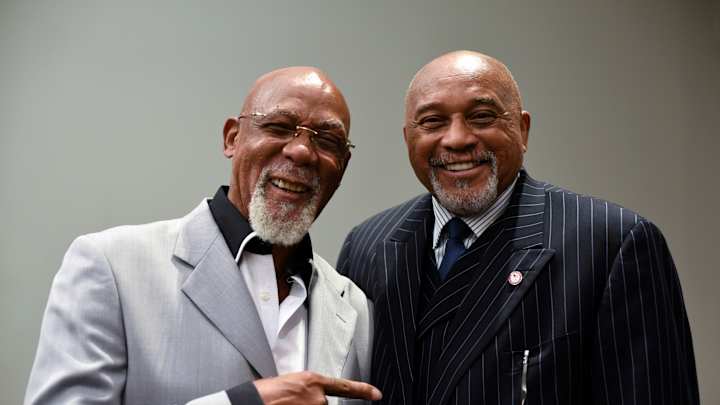White House trip helps USOC make strides on diversity

COLORADO SPRINGS, Colo. (AP) After watching their athletes pile up medals in Brazil, leaders of the U.S. Olympic team came home and produced results that could resonate every bit as loudly.
Among the U.S. Olympic Committee's achievements over the past 10 days were the re-embracing of black sprinters Tommie Smith and John Carlos - two of the most iconic figures in Olympic history - the righting of a racially tinged omission dating back 80 years and the decision to take an unflinching look at where America's Olympic teams stand in their mission to become more diverse.
The USOC has used the weeks following the 2016 Games to remind both itself and the world that the Olympic movement was created to bring people of different nations, colors and creeds together - and not to simply put on a lavish sports festival every two years.
''Football does it, basketball does it - they pay homage to all the athletes that came before the people who are famous now,'' American sprinter Justin Gatlin said. ''So to be able to do that for our athletes, it's an important step in the right direction.''
Smith and Carlos, whose raised fists on the medals stand sent a strong message about race and, in turn, got them kicked out of the Mexico City Olympics, were present for the USOC's history making trip to the White House last week - marking what they called the first official USOC event they'd been a part of since their ouster in 1968.
That White House trip also included relatives of America's black 1936 Olympians - a group that included Jesse Owens but that was never afforded that recognition upon their return from Berlin.
And before the DC trip, the USOC unveiled its public scorecards for diversity hiring in a frank, and public, assessment of the Olympic team's shortcomings in that area.
Plans for all these initiatives were hatched months ago - long before Colin Kaepernick's national anthem protests helped vault the issue of racial inequality and police violence into the mainstream of sports.
''We're not just doing it because it's the right thing to do, even though it is,'' said the USOC's CEO, Scott Blackmun, in speaking about the diversity scorecards. ''We need to improve our cultural competency. We need to harness the idea of a diverse talent pool because it's effective, not just because it's fair.''
In short, Blackmun would like to see the talent pool in administrative offices better reflect the talent pool on the field.
Carlos, who joined Smith in what remains as one of the most powerful signs of protest in sports history, called his official return to the USOC family ''a rebirth.''
''To evolve into one of the pillars of the sport and not be within the realm of the sport, it's a sensational feeling to come back,'' Carlos said. ''I think it'll be (good) for young kids to see Dr. Smith and myself, to hear our story and to encourage them to do the right thing relative to sports: Be clean, cherish your sport and spread your sport throughout society.''
Though those ideals have long been embedded in the Olympic charter, they have often been obscured by the cascade of spiraling costs, corruption, doping scandals and hosting problems that have dominated the recent era of the games.
The USOC story line, meanwhile, often veered between its long quest to bring the Olympics back to the U.S. (The Summer Games haven't been in America since 1996) and a revolving door of management and governance styles that, after long last, have found stable footing.
Even so, a big chunk of Blackmun's own report card will be based on whether the USOC can help bring the 2024 Olympics to Los Angeles.
But regardless of the bid, Blackmun has approached his leadership role with the awareness that the USOC has missions that go beyond winning medals and hosting the Olympics.
The invitation of the relatives of the 1936 Olympians was especially poignant given they had a chance to shake hands with the nation's first black president, Barack Obama.
There were 18 black members of that team, including Owens, whose four-gold-medal performance in Nazi Germany, as Obama put it Thursday, ''Put a lie to notions of racial superiority - whooped `em and taught them a thing or two about democracy and taught them a thing or two about the American character.''
---
AP Sports Writers Pat Graham and Stephen Whyno contributed to this report.
